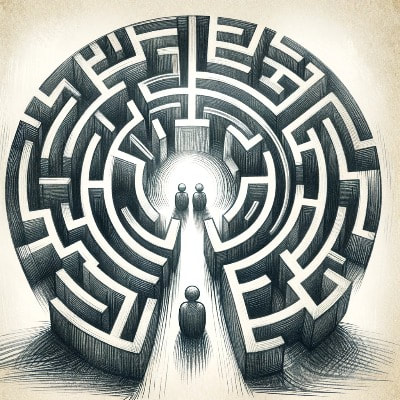|
This blog post was reviewed and approved for publication by Anne Phan-Huy M.D., a Board-certified psychiatrist at Apraku Psychiatry.
Let's say you're on a quest for the perfect pair of shoes. You walk into the store, already envisioning that comfortable, stylish fit that will effortlessly carry you through your days. Now, what if the salesperson just tossed you a random pair without asking about your size, your style preferences, or what you'll be doing in those shoes — running a marathon, navigating a boardroom, or hitting the dance floor? Most likely, you'd end up with something that pinches, or slips, or simply doesn't support you the way you need.
It's the same with therapy. You've recognized that you're struggling, and you're ready for change. But just like shoes, therapy isn't one-size-fits-all. Your unique needs, circumstances, and the specifics of what you're going through all play a role in finding the therapeutic approach that's going to help you the most. In this blog post, we'll delve into the diverse world of therapies. You'll learn about several types of therapeutic approaches and discover which ones are most effective for specific mental disorders. Our goal is to guide you — whether you're someone who’s already receiving support or are considering taking that step — to make an informed decision about which therapy modality might be the right fit for you. This blog post was reviewed and approved for publication by Abena Apraku M.D., a Board-certified psychiatrist at Apraku Psychiatry.
Have you ever wondered if you're truly getting the most out of your psychiatric care? Are you feeling stuck, unheard, or disconnected in your current therapeutic relationship? It's a question many hesitate to ask, but the answer could be pivotal to your mental health journey.
In this article, discover the five critical reasons that may suggest it is time to consider a change in your psychiatric care. Your mental well-being may depend on it, so read on! This blog post was reviewed and approved for publication by Chenhang Zou M.D., a Board-certified psychiatrist at Apraku Psychiatry.
Embarking on a journey towards mental health can often feel like entering an intricate maze. You stand on the precipice, faced with a plethora of professional titles — therapist, psychiatrist, psychologist — and find yourself wondering: ‘Who’s who in this landscape, and who might best cater to my needs?’
It’s easy to feel lost and overwhelmed, especially when each step you take towards seeking help seems to plunge you deeper into confusion. Yet, you are far from alone in this perplexing journey. Navigating the world of mental health professions is a common conundrum, often serving as a stumbling block for many individuals seeking help. However, confusion need not lead to stagnation. A little clarity can transform what seemed to be an impenetrable labyrinth into a navigable path. In this article, we will demystify this puzzle, focusing on two pivotal figures within the mental health profession: therapists and psychiatrists. Through a clear understanding of their roles and responsibilities, you’ll not only better appreciate the differences between these two professions, but you’ll also be empowered to take the first — or perhaps the next — step in your personal mental health journey. So, are you ready to unlock the door to a deeper understanding of the mental health landscape? Let’s delve in. |
Copyright © Apraku Psychiatry 2024




